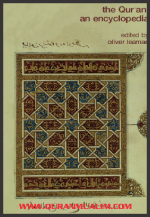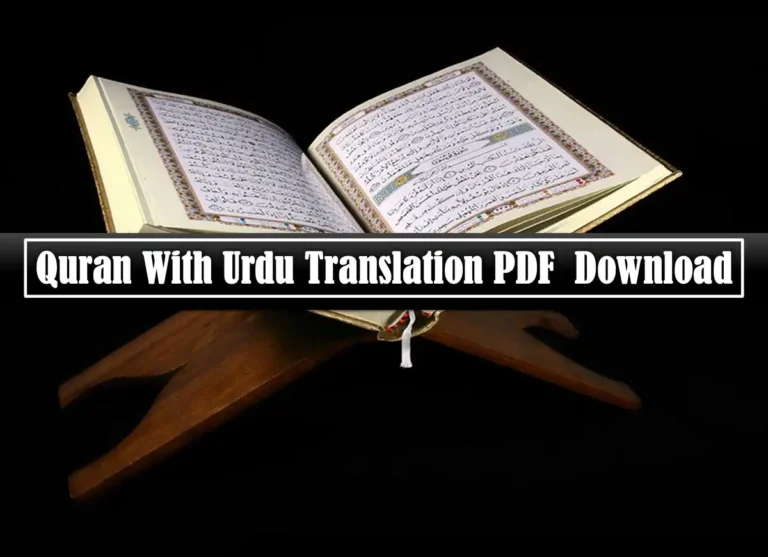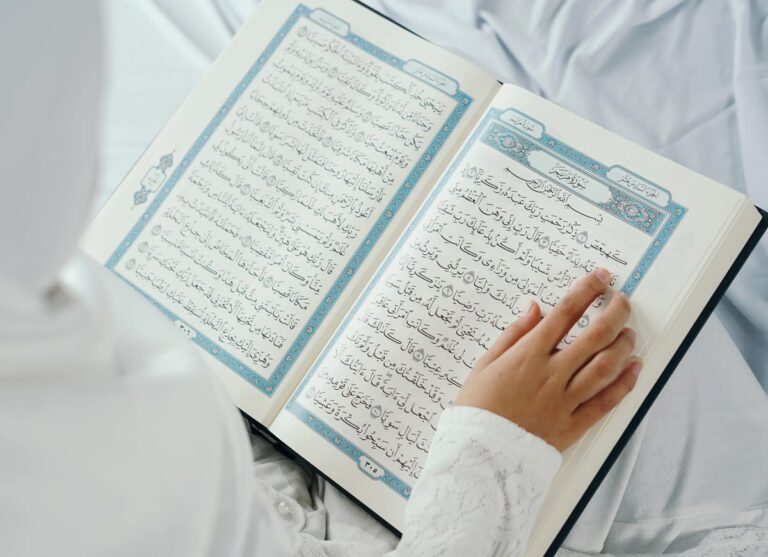What is the nisab? The Zakah of every type of animal will not be given. Following are its details: Animals which have been purchased for the purpose of trade lie under the category of trade goods. Their Zakah will be give according to their price.
The animals which graze in the jungle for most part of the year and the purpose of grazing them is only to obtain their milk and offspring and to make them gain weight, are called ‘Saaimah. Their Zakah will have to be given.
The animals which may even graze in the jungle but the purpose for having them is to transport goods, or use them for ploughing the earth or other such purpose, or use them for conveyance or eat their meat, are not ‘Saaimah’; it is not Wajib to give their Zakah. The Zakah of those animals is also not Wajib which are fed at home. (Durr-e-Mukhtar Wa-Radd-ul-Muhtar, vol. 3, pp. 232 – 234)
Note: Masarif [people deserving] of the ‘Zakah of animals’ are also the same as of the Zakah of gold, silver, currency notes, etc.
What if a person purchases an animal for trade and then starts grazing it?
If a person purchases an animal for trade but starts grazing it afterwards, the year [of Zakah] will start now provided that he makes the intention of making it ‘Saaimah’. However, if he has not made this intention, it will still lie under the category of trade goods. (Fatawa-e-Hindiyyah, vol. 3, pp. 177)
Like and Share How to Calculate Zakat, Beneficiaries of Zakat, Zakah | Zakat al Mal | Zakat – Learn Islam, Zakat Facts , Zakat ul Fitr, The Islamic Economics System in Islam, Islamic Studies for Kids, Debt in Islam, and Best Printable Ramadan Mubarak Free Download
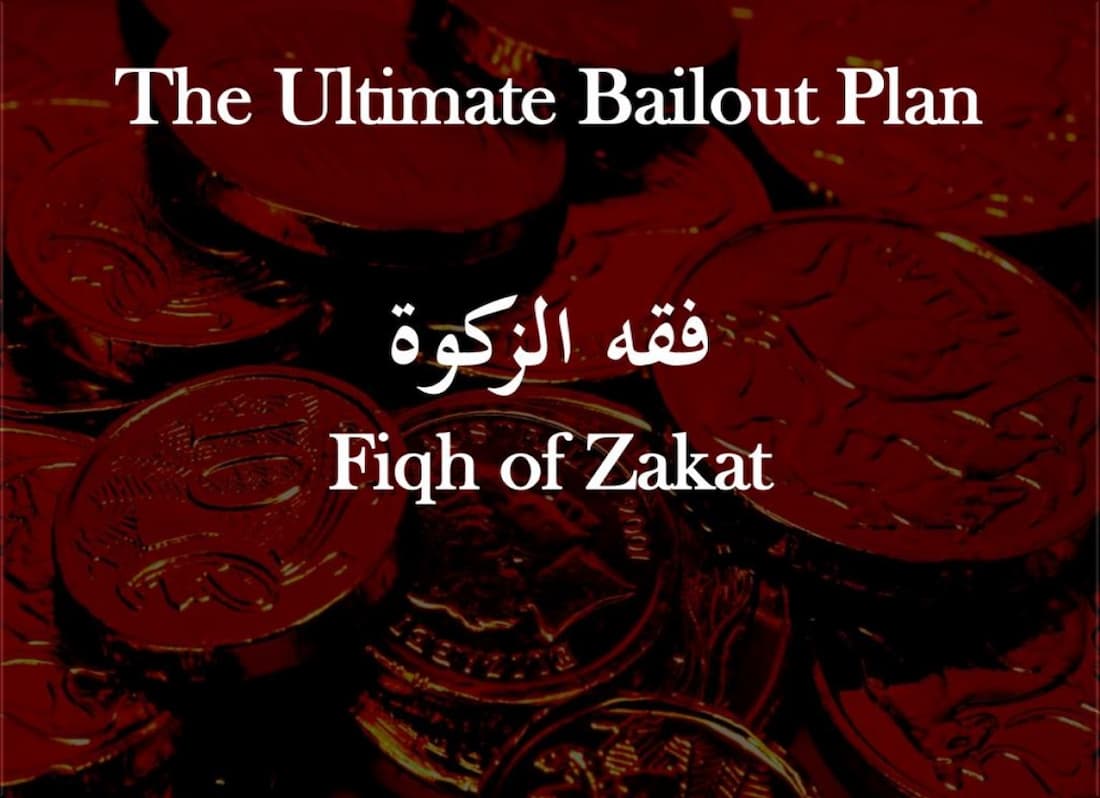
The Zakah of Waqf animals
It is not Wajib to give the Zakah of Waqf [dedicated] animals. (Durre-Mukhtar Wa-Radd-ul-Muhtar, vol. 3, pp. 236)
For which types of animals is Zakah Wajib?
Zakah is Wajib for three types of animals provided that they are ‘Saaimah’:
- Camel
- Cow
- Goat
The Zakah of camels
The details of the ‘Zakah of camels’ are as follows:
The Nisab becomes complete on at least 5 camels; Zakah is not ▪▪male or female goat will be given for every 5 camels. The Wajib on less than five camels. For paying Zakah of five to twenty-five camels, a one-year-old quantity between two successive Nisabs will not be included in Zakah. For example, after five camels, if there are one, two, three or four more camels, their Zakah will not be given; instead, it will be given when the number of camels increases to ten.
From 25 to 35 camels – An at least one-year-old female camel will be given. From 36 to 45 camels – An at least two-year-old female camel will be given. From 46 to 60 camels – An at least three-year-old female camel ▪ will be given. From 61 to 75 camels – An at least four-year-old female camel will be given will be given. From 76 to 90 camels – At least two-year-old, 2 female camels From 91 to 120 camels – At least three-year-old, 2 female camels will be given. From 121 to 145 camels – At least three-year-old, 2 female camels will be given and a one-year-old male or female goat will also be given for every 5 camels.
For example, for 125 camels, 1 female goat along with 2 female camels; for 130 camels, 2 female goats along with 2 female camels; for 135 camels, 3 female goats along with 2 female camels; for 140 camels, 4 female goats along with 2 female camels. For 145 camels, at least three-year-old, 2 female camels and at given. least one-year-old, 1 baby camel will be given. For 150 camels, at least three-year-old, 3 female camels will be From 150 to 170 camels, at least three-year-old, 3 female camels will be given and also, a one-year-old male or female goat will be given for every five camels.
For example, for 155 camels, one female goat along with 3 female camels; for 160 camels, 2 female goats along with female camels, and so on. From 175 to 185 camels, at least three-year-old, 3 female ▪ camels will be given and at least one-year-old, 1 female camel will also be given. From 186 to 195 camels, at least three-year-old, 3 female ▪▪ From 195 to 200 camels, at least three-year old, 4 female camels will be given and at least two-year-old, 1 female camel will also be given. camels will be given. If a person wishes, he can give at least two-year-old, 5 female camels. The Zakah for 200 to 250 camels will be calculated in a similar To understand it more easily,
| Number of camels | Zakah |
| From 5 to 9 | 1 female goat |
| From 10 to 14 | 2 female goats |
| From 15 to 19 | 3 female goats |
| From 20 to 24 | 4 female goats |
| From 25 to 35 | A one-year old female camel |
| From 36 to 45 | A two-year old female camel |
| From 46 to 60 | A three-year old female camel |
| From 61 to 75 | A four-year old female camel |
| From 76 to 90 | 2 two-year old female camels |
| From 91 to 120 | 2 three-year old female camels |
please refer to the following table: ▪ way as the calculation has been made for 150 to 200 camels. (Fatawa-e-Hindiyyah, vol. 1, pp. 177, Durr-e-Mukhtar, vol. 3, pp. 238)
What if a male camel is given in place of a female camel for the Zakah of camels?
For the Zakah of camels, a male camel can also be given in place of a female camel but it is necessary that its price should not be less than that of a female camel. (Durr e-Mukhtar, vol. 3, pp. 240)
Paying the price of animals for the Zakah of camels
In place of the aforementioned animals, their price can also be given for the Zakah of camels.
The Zakah of cows
The details of the ‘Zakah of cows and buffaloes’ are as follows: The Nisab becomes complete on at least 30 cows or buffaloes; male or female calf (Calf’ here refers only to the baby of a cow.)will be given.
Zakah is not Wajib for less than thirty. For the Zakah of 30 to 39 cows / buffaloes: A one-year-old For the Zakah of 40 to 59 cows / buffaloes: A two-year-old male or female calf will be given.
For the Zakah of 60 cows / buffaloes: 2 one-year-old male or two-year-old male or female calf will be given. female calves will be given. For the Zakah of 70 cows / buffaloes: 1 one-year-old and For the Zakah of 80 cows / buffaloes: 2 two-year-old male or female calves will be given. (Durr-e-Mukhtar, vol. 3, pp. 341)
| Number of cows or buffaloes | Zakah |
| 30 | A one-year old male or female calf |
| 40 | A two-year old male or female calf |
| 60 | 2 one-year old male or female calves |
| 70 | 1 one-year old male calf and 1 twoyear old male calf |
| 80 | 2 two-year old male calves |
The Zakah of goats
The details of the ‘Zakah of male and female goats, and male and female sheep’ are as follows:
The Nisab becomes complete on at least 40 male goats or female goat will be given. femal goats, etc.; Zakah is not Wajib for less than forty. For the Zakah of 40 to 120 goats / sheep: A one-year-old male For the Zakah of 121 to 200 goats / sheep: 2 one-year-old male ▪or female goats will be given. or female goats will be given. For the Zakah of 201 to 399 goats / sheep: 3 one-year-old male For the Zakah of 400 goats / sheep: 4 one-year-old male or female goats will be given. After this, one male or female goat will be increased on every
| No. of female goats | Zakah |
| From 40 to 120 | 1 female goat |
| From 121 to 200 | 2 female goats |
| From 201 to 399 | 3 female goats |
| 400 | 4 female goats |
| More than 400 | 1 female goat for every 100 |
100 goats / sheep. (Fatawa-e-Hindiyyah, vol. 1, pp. 178) For understanding it more easily, refer to the following table: Other rulings on the Zakah of animals What should be the age of animals for Zakah to become Wajib?
The Zakah of one-year-old animals is Wajib. For example, if there are 39 female goats aged less than 1 and 1 goat aged 1 or over, then, all the animals will be included in the calculation. They will not be included if none of them is aged 1 or over. (Al-Jauhara-tun-Nayirrah, vol. 3, pp. 208)
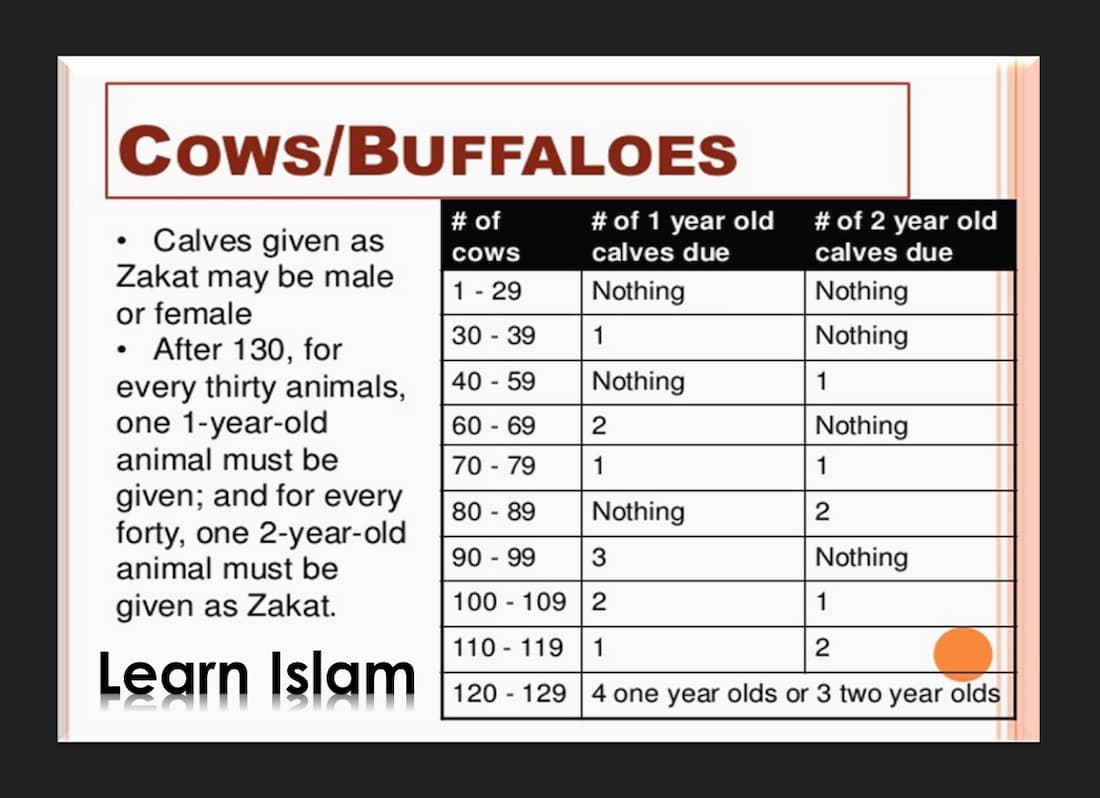
What if none of the animals reaches the Nisab?
If a person owns camels, cows and goats but none of them reaches the Nisab [individually], they will not be combined together [to calculate Zakah collectively]. (Durr-e-Mukhtar, vol. 3, pp. 208)
The Zakah of horses, donkeys and mules
It is not Wajib to give the Zakah of a horse, donkey and mule even if they are ‘Saaimah’. However, Zakah is Wajib if they are for the purpose of trade. (Durr-e-Mukhtar, vol. 3, pp. 244)
Sadaqa-tul-Fitr ( Purchase the pamphlet of ‘Sadaqa-e-Fitr kay Faza’il-o-Masa’il’ (by Ameer-e-Ahl-eSunnat ) from Maktaba-tul-Madinah.)
After Ramadan, Wajib Sadaqah given before offering Salat-ul-Eid is known as Sadaqa-tul-Fitr. Allamah Mufti Muhammad Khalil Khan Barakati has stated: Sadaqa-tul-Fitr is actually the Sadaqah of the Sawms [fasts] of Ramadan-ul-Mubarak so that the Sawms become purified from useless and bad acts, the poor and needy may prepare for Eid, and [by means of giving Sadaqah] a person may express thanks for the blessings he has received from Sawms. (Hamarah Islam, Part. 7, pp. 87)
4 narrations mentioning the excellence of Sadaqa-tul-Fitr
- The Beloved Rasool was asked about the following blessed Ayah:
- Indeed successful is the one who became pure. And offered Salah, having mentioned the name of his Lord. [Translation of Quran (Kanz-ul-Iman)](Part 30, Surah Al-A’laa, Ayah 14 – 15)
So, the Beloved Rasool responded: This Ayah has been revealed regarding Sadaqa-tul-Fitr. (Sahih Ibn Khuzaymah, vol. 4, pp. 90, Hadees 397)
- The Beloved Rasool has stated: Those who are your wealthy people, (because of giving Sadaqa-tul-Fitr,) Allah will purify them and those who are your poor people, Allah will give them even more than it. (Sunan Abi Dawood, vol. 2, pp. 161, Hadees 1619)
- Sayyiduna Ibn Umar has stated that there are three virtues in giving Sadaqa-tul-Fitr: The first one is Sawm being accepted, the second is easiness in the agonies of death and the third is salvation from the torment of grave. (Al-Mabsut Lil- Sarkhasi, vol. 2, pp. 114)
- Sayyiduna Abu Khuldah has stated: I went in the court of Sayyiduna Abul Aaliyah He said: ‘Meet me when you go to Eidgah(Ground where Salat-ul-Eid is offered in congregation.)’ When I went, he asked me: ‘Have you eaten anything?’ I replied: ‘Yes.’ He asked: ‘Have you taken a bath?’ I replied: ‘Yes.’ He asked: ‘Have you paid Sadaqa-tul-Fitr?’ I replied: ‘Yes, I have paid Sadaqa-tul-Fitr.’ He said: ‘I had called you for this very reason.’ Then he recited the following blessed Ayah:
Thereafter, he said: ‘The people of Madinah would not consider any Sadaqah to be superior to Sadaqa-tul-Fitr and serving water.’ (Tafseer-e-Qurtubi, vol. 12, pp. 547, Raqm 36992)
When did Shari’ah make Sadaqa-tul-Fitr Wajib?
The Sawms of Ramadan became Fard in 2 Hijri and the commandment of [paying] Sadaqa-tul-Fitr was given the same year, two days before Eid. (Durr-e-Mukhtar, vol. 3, pp. 362)
The wisdom of making Sadaqa-tul-Fitr Wajib
Sayyiduna Ibn has narrated that the Beloved Rasool declared Sadaqa-tul-Fitr to be Wajib for purifying the Sawms [fasts] from useless and immodest talk, and for feeding the Miskeen [needy people]. (Sunan Abi Dawood, vol. 2, pp. 157, Hadees 1609)
In the explanation of the aforementioned Hadees, Mufti Ahmad Yar Khan Na’eemi has stated: There are two [pieces of] wisdom of making Fitrah Wajib: One of them is the forgiveness of shortcomings in the Sawms of a Sawm-observing person.
Anger often increases while observing Sawm, so a person starts quaralling without a reason and sometimes, he tells lies, commits backbiting, etc. By the blessing of this Fitrah, Allah will forgive those disliked and sinful acts as sins are forgiven because of virtuous deeds. The second [piece of] wisdom is to provide food to Masakeen [the needy]. (Miraat-ul-Manajeeh, vol. 3, pp. 43)
Shar’i ruling on Sadaqa-tul-Fitr
It is Wajib to give Sadaqa-tul-Fitr. (Durr-e-Mukhtar, vol. 3, pp. 362) In Sahih Bukhari, Sayyiduna Abdullah Bin Umar has narrated that the Beloved Rasool declared Sadaqa-tul-Fitr to be Wajib on Muslims. (Sahih Bukhari, vol. 1, pp. 507, Hadees 1503)
On whom is Sadaqa-tul-Fitr Wajib?
Sadaqa-tul-Fitr is Wajib on every free Muslim who is the owner of Nisab and his Nisab is exclusive of Hajat-e-Asliyyah (i.e. basic necessities of life). (Durr-e-Mukhtar, vol. 3, pp. 365)
A man who is the owner of Nisab should pay his own Sadaqa-tulFitr, Sadaqa-tul-Fitr of his small children and if he has a Majnoon [insane] child, he should pay his Sadaqa-tul-Fitr as well (even if that child is Baligh)( Person who has reached puberty.). However, if his small or insane child is himself the owner of Nisab, he may pay Fitrah from that child’s wealth. (Fatawae-Hindiyyah, vol. 1, pp. 192) Note: Please read the definitions of the ‘owner of Nisab’ and ‘Hajate-Asliyyah’ again on page 20.
When does Sadaqa-tul-Fitr become Wajib?
On the day of Eid, Sadaqa-tul-Fitr becomes Wajib [compulsory] as soon as dawn breaks. Therefore, Sadaqa-tul-Fitr does not become Wajib if before the break of dawn, a person dies, or becomes a Faqeer previously being a Ghani person, or if after the break of dawn, a Kafir [unbeliever] becomes a Muslim or a child is born or a person becomes Ghani previously being a Faqeer. However, Sadaqa-tul-Fitr becomes Wajib if a person dies after the break of dawn, or if before the break of dawn, a Kafir becomes a Muslim or a child is born or a person becomes Ghani previously being a Faqeer. (Fatawa-e-Hindiyyah, vol. 1, pp. 192)
The difference between Zakah and Sadaqa-tul-Fitr
The completion of a year, being Aaqil [sane] and Baligh, and possessing Nisab-e-Naami (i.e. Nisab, growing in nature) are the conditions for Zakah, whereas these are not the conditions for Sadaqa-tul-Fitr. Therefore, if a person has excess possessions at home and their value reaches the Nisab, Sadaqa-tul-Fitr will become Wajib on him, even if they do not lie under the category of Maal-e-Naami. This difference between the Nisab of Zakah and Sadaqa-tul-Fitr is according to the category [of Maal]. (Durr-e-Mukhtar, vol. 3, pp. 207 – 214 – 365)
The conditions of the payment of Sadaqa-tul-Fitr
For Sadaqa-tul-Fitr as well, it is a condition to make intention and make a Muslim Faqeer the owner of the amount of Sadaqa-tul-Fitr. (Radd-ul-Muhtar, vol. 3, pp. 380)
Sadaqa-tul-Fitr of a Na-Baligh
If a Na-Baligh is the owner of Nisab, Sadaqa-tul-Fitr is Wajib on him as well. His Wali ( Wali is a person specified by Shari’ah whose decision is enforced on someone,) should pay Sadaqa-tul-Fitr from his wealth [i.e. from the wealth of Na-Baligh]. (Durr-e-Mukhtar, vol. 3, pp. 207 – 214 – 365)
The Sadaqa-tul-Fitr of an unborn baby
It is not Wajib to pay Sadaqa-tul-Fitr of an unborn baby. (Fatawa-e-Hindiyyah, vol. 1, pp. 192)
The Sadaqa-tul-Fitr of one’s younger brother
If a person looks after his younger brother who is poor, Sadaqa-tulFitr of his younger brother is still Wajib on his father if the father has wealth, not on this elder brother. It is stated in Fatawa Aalamgiri: Sadaqah of his younger brother is not Wajib [on a person] even if his younger brother is amongst his dependants. (Fatawa-e-Hindiyyah, vol. 1, pp. 193)
What if a person’s Sadaqa-tul-Fitr has not been paid?
If someone’s father did not pay his [i.e. the child’s] Sadaqa-tul-Fitr when he was Na-Baligh, he himself should pay it after becoming Baligh ( Person who has reached puberty.) provided that he was the owner of Nisab in his childhood. However, if he was not the owner of Nisab in his childhood, it is not Wajib for him to pay it after becoming Baligh. (Durr-e-Mukhtar Wa-Radd-ul-Muhtar, vol. 3, pp. 365)
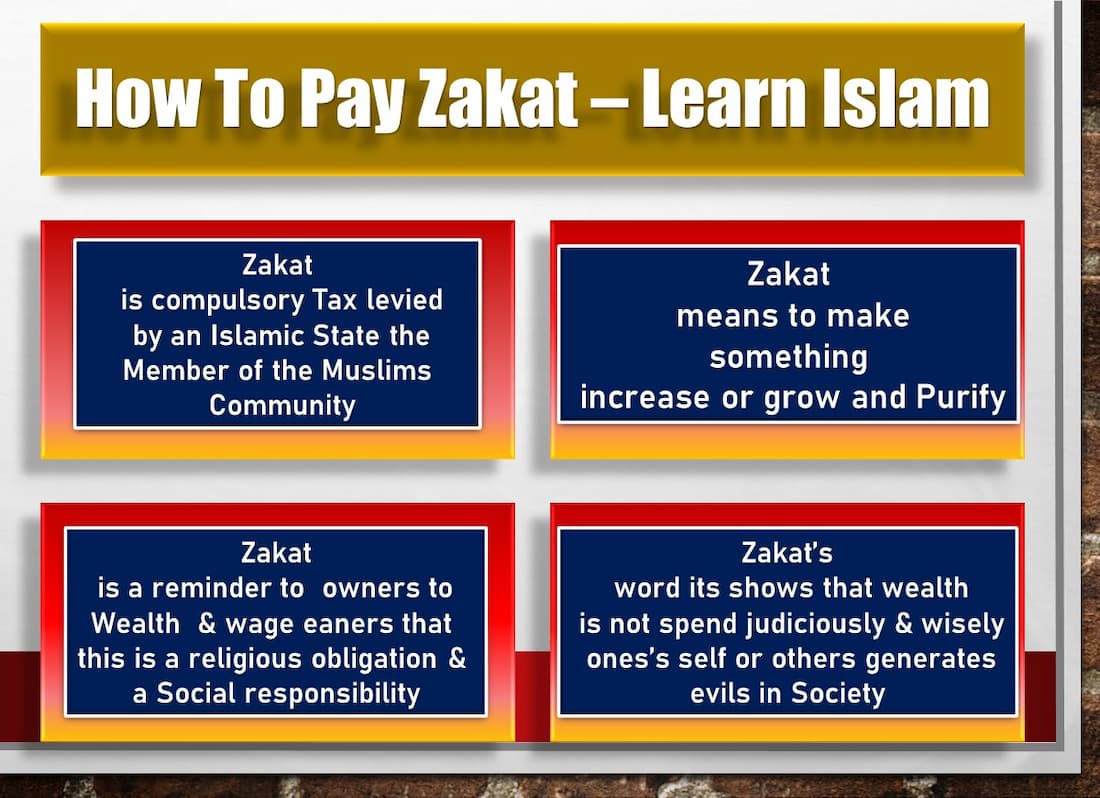
What if someone’s father has not observed Sawms?
If father is the owner of Nisab, Sadaqa-tul-Fitr of Na-Baligh children is Wajib on him, not on their mother, even if he has not observed the Sawms of Ramadan. (Durr-e-Mukhtar Wa-Radd-ul-Muhtar, vol. 3, pp. 367 – 368)
Sadaqa-tul-Fitr of children is not Wajib upon the mother
If the father has passed away, it is not Wajib upon the mother to give Sadaqa-tul-Fitr of her small children. (Durr-e-Mukhtar, vol. 3, pp. 368)
The Sadaqa-tul-Fitr of orphans
If the father of children has passed away, it is Wajib upon their paternal grandfather to give Sadaqa-tul-Fitr of his poor, orphan grandchildren provided that these children do not own the Nisab. (Durr-e-Mukhtar, vol. 3, pp. 368)
The Sadaqa-tul-Fitr of the children of a poor person
If the father is poor, it is Wajib upon the children’s paternal grandfather, possessing the Nisab, to give Sadaqa-tul-Fitr of his poor grandchildren, provided that the children are not wealthy. (Durr-e-Mukhtar, vol. 3, pp. 368)
Observing Sawm is not a condition for Sadaqa-tul-Fitr
Observing Sawm is not a condition for Sadaqa-tul-Fitr to become Wajib. Therefore, even a person who does not observe Sawm due to a valid reason such as a journey, illness, and old age, or ( ) the one who leaves Sawm without any valid reason will pay Sadaqa-tul-Fitr. (Durr-e-Mukhtar, vol. 3, pp. 367)
What if the children reside in Pakistan but the father in a different country? If small children reside in Pakistan and their father in a different country, it is Wajib on the father to give the price of wheat as Sadaqa-tul-Fitr of small (Na-Baligh) children according to the country he resides in. It is stated in Fatawa Aalamgiri: For Sadaqatul-Fitr, the Sadaqah-giving person’s place of residence is considered, not the small children’s place of residence. (Fatawa-e-Hindiyyah, vol. 1, pp. 193)
The birth of a child in the night preceding Eid-ul-Fitr
If a child is born in the night preceding Eid-ul-Fitr, his Sadaqa-tulFitr will have to be given as well because Sadaqa-tul-Fitr becomes Wajib as soon as dawn breaks on the day of Eid. Sadaqa-tul-Fitr is not Wajib if he is born afterwards. (Fatawa-e-Hindiyyah, vol. 1, pp. 192)
The Sadaqa-tul-Fitr of a person who embraces Islam in the night preceding Eid-ul-Fitr
Sadaqa-tul-Fitr becomes Wajib as soon as dawn breaks on the day of Eid. Therefore, if someone embraces Islam before the break of dawn, it is Wajib on him to give Sadaqa-tul-Fitr. However, Sadaqatul-Fitr will not be Wajib if he has embraced Islam afterwards (Fatawa-e-Hindiyyah, vol. 1, pp. 192)
What if one’s Maal gets destroyed?
If the Maal [one’s wealth] gets destroyed after Sadaqa-tul-Fitr becomes Wajib, it will still have to be given because contrary to [the condition of the payment of] Zakah and Ushr, the existence of Maal is not a condition for the payment of Sadaqa-tul-Fitr. (Durr-e-Mukhtar, vol. 3, pp. 366)
The Sadaqa-tul-Fitr of a dead person
If a person has not made a will and passed away, leaving behind wealth, it is not Wajib on the inheritors to pay his Sadaqa-tul-Fitr from his wealth because Sadaqa-tul-Fitr is Wajib on a person, not on the wealth. However, his Sadaqa-tul-Fitr can be paid if the inheritors pay it as a favour, out of their own pocket; they are under no compulsion. (Fatawa-e-Hindiyyah, vol. 3, pp. 193)
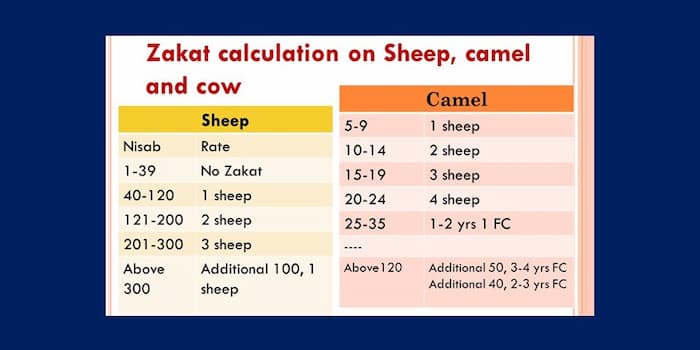
The Sadaqa-tul-Fitr of guests
A host will not pay the Sadaqa-tul-Fitr of the guests he receives on the occasion of Eid. If the guests own the Nisab, they should pay their Sadaqa-tul-Fitr themselves. (Fatawa-e-Razawiyyah, vol. 10, pp. 296)
The Sadaqa-tul-Fitr of a married daughter
If a married daughter celebrates Eid at her father’s house, Sadaqatul-Fitr of her small children is [Wajib] on the father of the children whereas the woman’s Sadaqa-tul-Fitr is neither [Wajib] on her father nor husband; if she is the owner of Nisab, she should pay it herself. (Fatawa-e-Razawiyyah, vol. 10, pp. 296)
Paying Sadaqa-tul-Fitr without one’s permission
If the wife pays the Sadaqa-tul-Fitr of her husband without his permission, Sadaqa-tul-Fitr will not be regarded as paid unless there is explicit or implicit permission. (Fatawa-e-Hindiyyah, vol. 1, pp. 193)
If a husband pays the Sadaqa-tul-Fitr of his wife or Baligh children without their permission, Sadaqa-tul-Fitr will be regarded as paid provided that they are his dependants. (Durr-e-Mukhtar Wa-Radd-ul-Muhtar, vol. 3, pp. 370)
In Fatawa Razawiyyah, A’la Hadrat has stated: Sadaqatul-Fitr is a form of worship and intention is a condition for worship, so it is impossible [for Sadaqa-tul-Fitr to be regarded as paid] without permission. However, explicit permission is not necessary; implicit permission is sufficient. For example, if Zayd is amongst a person’s dependants and this person fulfils Zayd’s need of food and clothing, then Sadaqa-tul-Fitr will be regarded as paid. (Fatawa-e-Razawiyyah, vol. 20, pp. 453)
Which items can be used to pay Sadaqa-tul-Fitr?
Half Saa’ ( A unit used in the past for measuring weight,.) of wheat or its flour or Sattoo [roasted flour]; or one Saa’ of dates, or raisins, or barley or its flour or its Sattoo. If a person wishes to pay Sadaqa-tul-Fitr with anything else other than these four items (i.e. wheat, barley, dates, raisins), such as rice, sorghum, millet or some other grain or anything else, he will have to take the price into account. That item should have a value equal to the price of half Saa’ of wheat or one Saa’ of barley. If a person gives roti [as Sadaqa-tul-Fitr], the price will be taken into account, even if it is made of wheat or barley. (Bahar-e-Shari’at, Part 5, pp. 939)
The amount of Sadaqa-tul-Fitr
There is a difference of opinion amongst the blessed scholars regarding the amount of Sadaqa-tul-Fitr, since they differ in the opinion regarding the amount of Saa’. It is stated in Fatawa Razawiyyah: Cautiousness lies in giving wheat according to Saa’ of barley. One Saa’ of barley contains wheat worth 351 rupees, so half Saa’ will contain wheat worth 175 rupees and 50 paise. (Fatawa-e-Razawiyyah, vol. 10, pp. 295)
The amount of Sadaqa-tul-Fitr expressed in an easy way
The amount of one Sadaqa-tul-Fitr: Wheat worth ‘175 rupees and 50 paise’ (i.e. 1.92 kg) or its flour or the price of this amount of wheat. If a person wishes to give dates, raisins, barley, or its flour or Sattoo, or their price, the amount of one Sadaqa-tul-Fitr is ‘[amount of wheat] worth 351 rupees’ (i.e. 3.84 kg). (Derived from: Bahar e-Shari’at, vol. 1, part. 5, pp. 938 – 939)
The time for the payment of Sadaqa-tul-Fitr
It is better to pay Sadaqa-tul-Fitr after the break of dawn of the Eid day, before going to Eidgah. (Ground where Salat-ul-Eid is offered in congregation.)(Durr-e-Mukhtar, vol. 3, pp. 376)
What if Sadaqa-tul-Fitr is paid in Ramadan?
It is stated in Fatawa Aalamgiri: It is permissible to pay Sadaqa-tul- Fitr before Eid-ul-Fitr. (Fatawa-e-Hindiyyah, vol. 1, pp. 193)
Paying Sadaqa-tul-Fitr even before Ramadan
It is permissible to pay Sadaqa-tul-Fitr even before Ramadan. (Fatawa–e-Hindiyyah, vol. 1, pp. 192)
Being the owner of Nisab while giving Sadaqa-tul-Fitr in advance
It is correct if a person gives Sadaqa-tul-Fitr before becoming the owner of Nisab and thereafter, becomes the owner of Nisab. (Fatawa-e-Hindiyyah, vol. 1, pp. 192)
What if a person gives Sadaqa-tul-Fitr after Eid?
A’la Hadrat has stated: The time for giving Sadaqa-tulFitr is very long. A person can give it before Eid-ul-Fitr as well as after Eid-ul-Fitr. However, one should not delay it for the future. In fact, giving it before Salat-ul-Eid is better as it is stated in a blessed Hadees that the Sawms [fasts] of the owner of Nisab remain suspended until he pays Sadaqah. (Fatawa-e-Razawiyyah, vol. 10, pp. 253)
Which item is Afdal for giving Sadaqa-tul-Fitr?
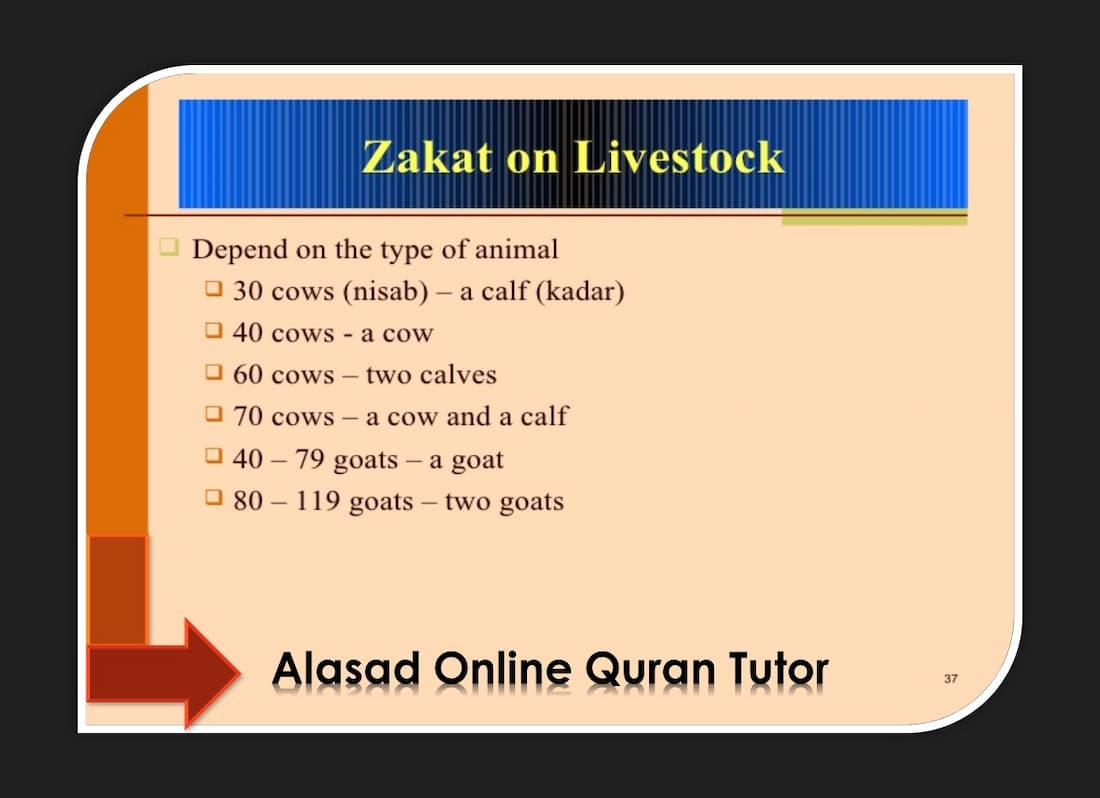
Instead of giving wheat and barley, it is Afdal [better] to give the flour of wheat and barley, and giving the price is even Afdal than it. It doesn’t matter whether the price of wheat or barley or dates is given. However, in times of drought, it is Afdal to give these items than giving the price. (Fatawa-e-Hindiyyah, vol. 1, pp. 191-192; Noor-ul-Izah, pp. 173 – 174)
To whom should Sadaqa-tul-Fitr be given?
The Masarif [people deserving] of Sadaqa-tul-Fitr are the same as the Masarif of Zakah. (‘Aalamgeeri, vol. 1, pp. 194)It means that Sadaqatul-Fitr can be given to the people whom Zakah can be given and [likewise] it cannot be given to the people whom Zakah cannot be given. Therefore, just like Zakah, the amount of Sadaqa-tul-Fitr can also be used for Madaris, Jami’aat and other religious purposes after performing Shar’i Heelah. (Fatawa-e-Amjadiyyah, vol. 1, pp. 376)
To whom should Sadaqa-tul-Fitr not be given?
Those people to whom Zakah cannot be given, Sadaqa-tul-Fitr cannot be given as well. Therefore, Sadaqa-tul-Fitr cannot be given to blessed Sayyids. (Durr-e-Mukhtar Wa-Radd-ul-Muhtar, vol. 3, pp. 379)
Giving Sadaqa-tul-Fitr to one Miskeen only
It is better to give Sadaqa-tul-Fitr to one Miskeen or Faqeer (Please refer to the definitions of ‘Miskeen’ and ‘Faqeer’ on page 30.) only. It is permissible to give the Sadaqa-tul-Fitr of one person to more than one Miskeen. Likewise, the Sadaqa-tul-Fitr of more than one person can also be given to only one Miskeen. (Durr-e-Mukhtar Wa-Radd-ul-Muhtar, vol. 3, pp. 377)


